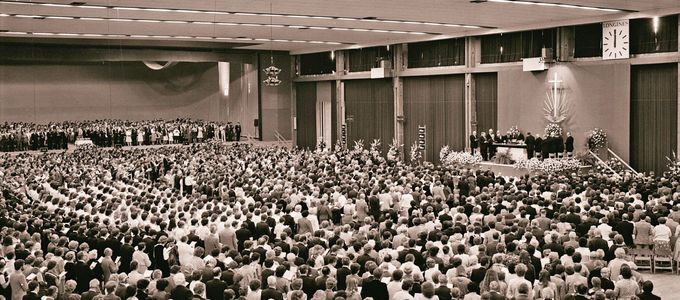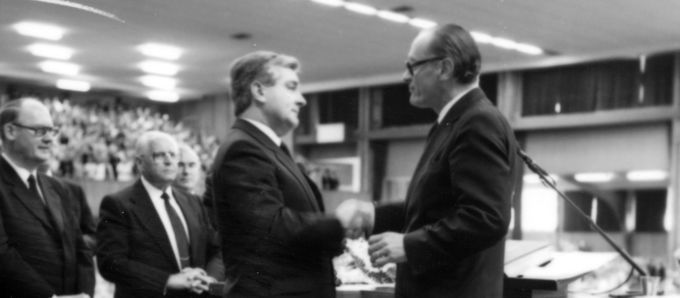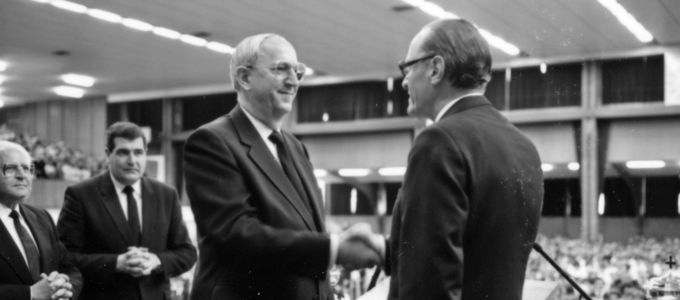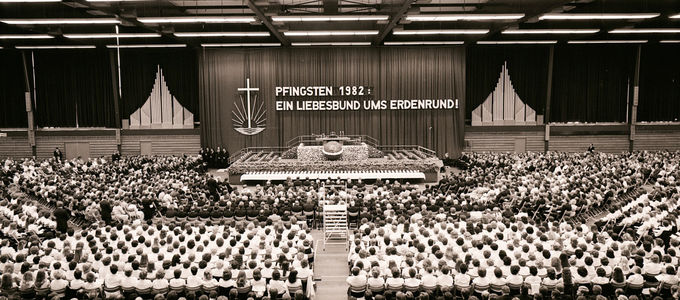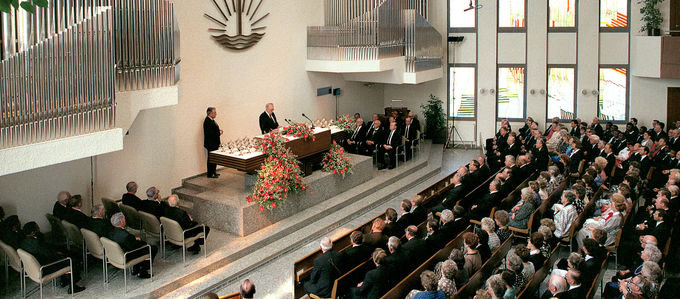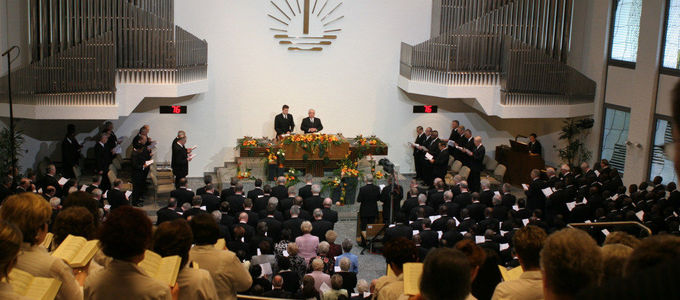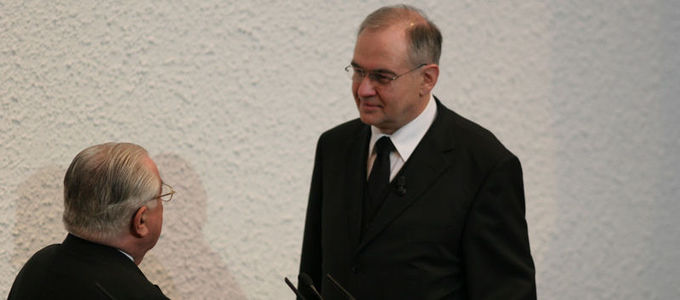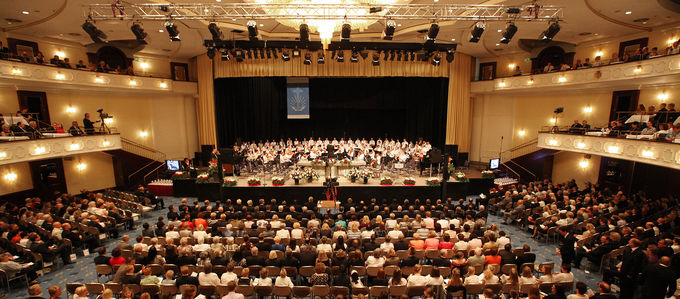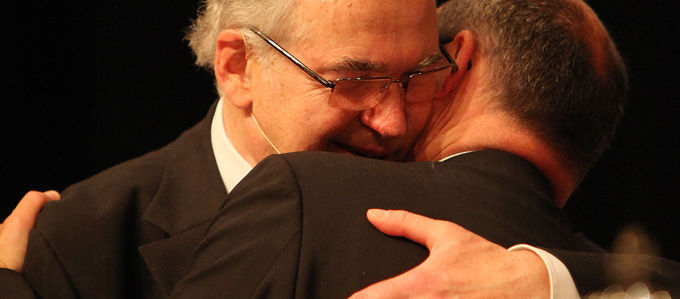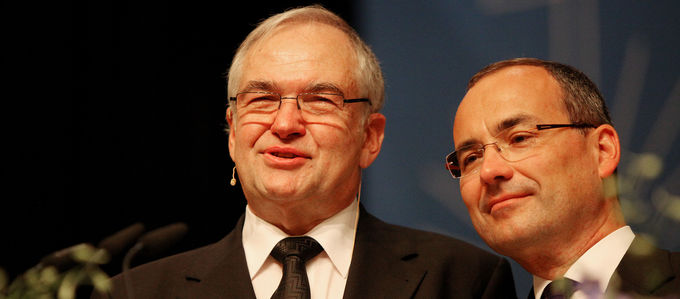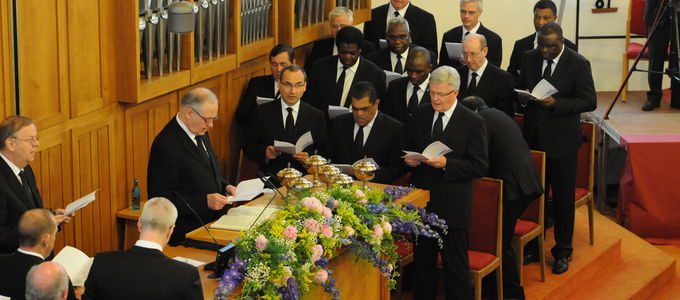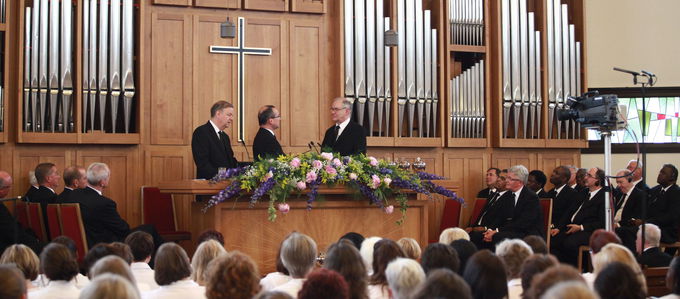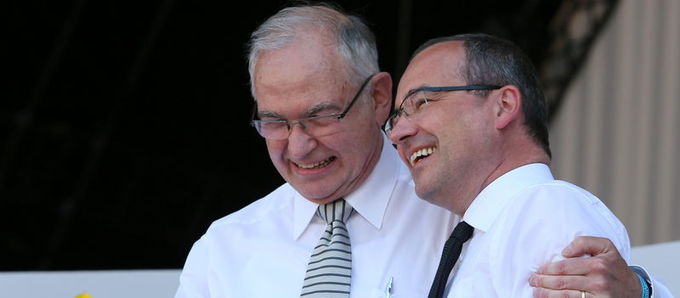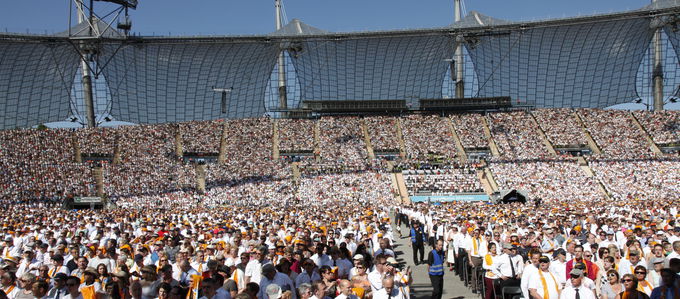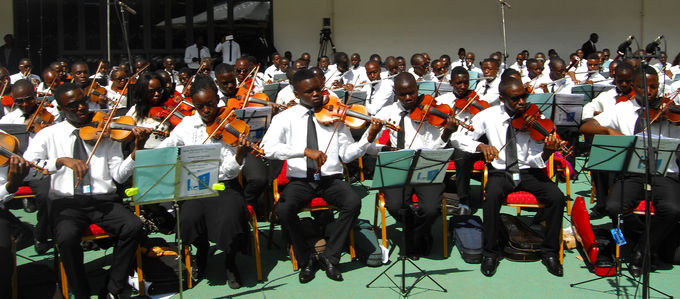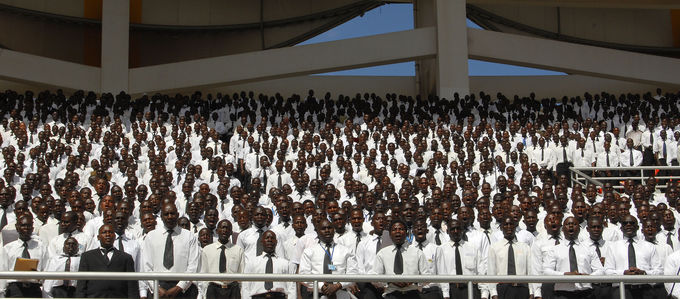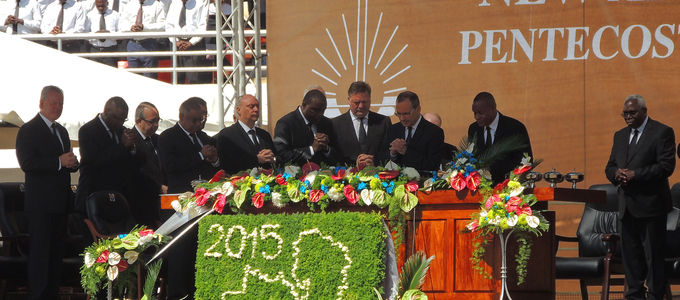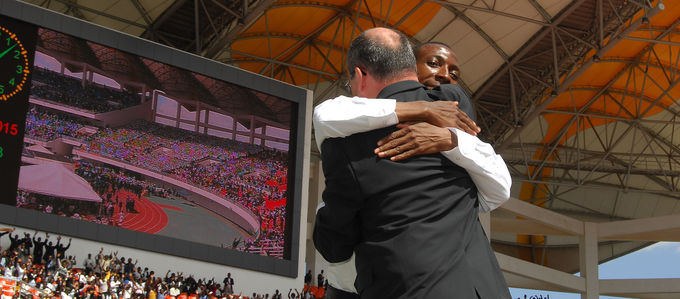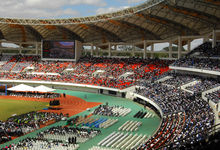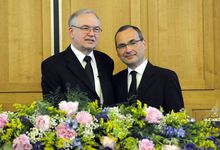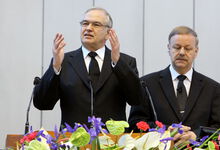Central divine service: how New Year turned into Pentecost
Pentecost is a very special feast for the New Apostolic Church—a kind of birthday celebration of the worldwide Church. Following are some highlights from four decades.
“This is our Pentecost joy: our love is ablaze and our hope is alive, and we expect the return of our Lord, bridegroom of our soul, any day.” It was Chief Apostle Ernst Streckeisen who described the special significance of this Church feast for the New Apostolic Church in an article for the Word of Life in 1978.
A new date and what the weather had to do with it
That Pentecost developed into a kind of central event for the Church also had something to do with the vagaries of the European winter. Until the early 1980s the New Year’s Day service was always the annual event that was transmitted as far abroad as possible—in those days there were only audio broadcasts.
But after tens of thousands of members could not make it to the transmissions in their congregations on account of ice and snow, and this happened several times, the organizers set their sights on spring and the Pentecost holiday in May. Decisive, however, was its significance as the birthday of the church of Christ.
Central event with and without transmissions
Not only the audio-transmission to Western Europe, but also the first Bible text that was chosen to be used on this day throughout the world is what made the Pentecost service in Berne (Switzerland) in 1981 so special and why it is considered the start of a tradition we still practice today. By the way, at that time Chief Apostle Hans Urwyler ordained a certain Richard Fehr as District Apostle for Switzerland.
There was a double premiere on Pentecost 1982 in Böblingen (Germany). For the first time ever, the service was broadcast to all continents, including English-speaking regions. And for the first time ever, the Chief Apostle addressed a Pentecost message to the members around the world: “Therefore you shall be perfect, just as your Father in heaven is perfect” (Matthew 5: 48).
Handover of the Chief Apostle ministry
Since then, Pentecost has been the date for the handover from one Chief Apostle to the next. Chief Apostle Richard Fehr, then as newly ordained Chief Apostle, conducted the Pentecost service in Fellbach (Germany) in 1988. On retiring, he handed the reins over to his successor, Wilhelm Leber in 2005—again in Fellbach.
On Pentecost 2013, the New Apostolic Church not only celebrated its 150th anniversary, but Jean-Luc Schneider also assumed the leadership of the Church as Chief Apostle in a divine service in Hamburg (Germany). A year earlier, on Pentecost, he had been commissioned as a Chief Apostle Helper in Cologne (Germany).
Regional Apostle conferences came to be an integral part of the Pentecost celebrations. Since 1990, in Vienna (Austria), international Apostle conferences have been taking place at regular intervals. The last one was in Cape Town (South Africa) in 2010.
Excitement on the streets and on the Internet
Last year’s joyful Pentecost celebrations in Zambia delighted viewers worldwide: the joy and excitement of the people to be able to see their Chief Apostle was obvious. Everywhere there were people lining the streets as the buses carrying the Chief Apostle and Apostles made their way to the concert and to the divine service. The people wore scarves, T-shirts, or hats embossed with our emblem, showing how proud they were to be members of the Church.
Meanwhile, there is growing excitement in Frankfurt (Germany), where this year’s Pentecost feast will take place. There is a dedicated website and a poster campaign has been started to prepare for the special day. The motto for the 2016 Pentecost celebrations is: “Leben im Geist – Living in the Spirit – Vivre selon l’Esprit”.
A 130-page brochure retraces the history of the New Apostolic Pentecost celebrations and takes you right up to the year 2012. It is available in the German language from the District Church of North-Rhine Westphalia and in English from the District Church of Canada. There is a short version at nak.org.
Article info
Author:
Date:
Keywords:
Andreas Rother
25.04.2016
#nacpentecost
, Pentecost,
International,
Divine service


